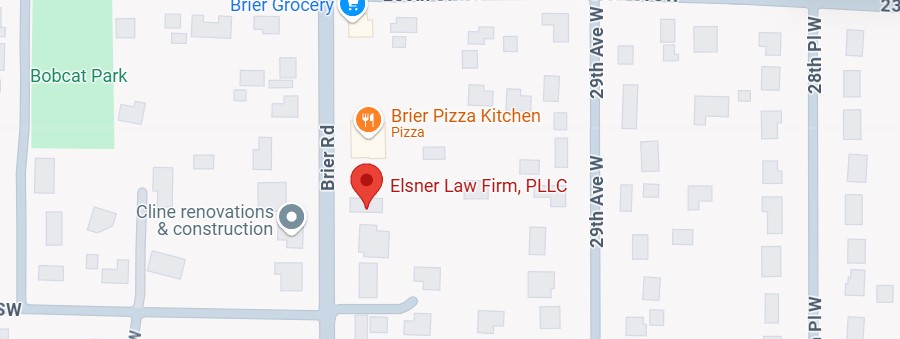Bad Faith in Personal Injury: What Does It Mean?
Insurance bad faith is deception, dishonesty, inequity, and unfair treatment of the insured. When you buy insurance, your agent acts as if he is your best friend. But when you file a claim, that friendship is nowhere to be seen. The insurance company will have you deal with the claims department. You may encounter an outright denial of your claim, long delays in getting payment, or an offer for substantially less than you deserve. When that happens, the insurance company may be acting in bad faith. Insurance bad faith is just plain wrong. You paid for the policy so you should be treated fairly. Washington State law provides that you can hold an insurance company and in some cases, even an insurance adjuster legally liable for bad faith claims handling if their handling of your insurance claim violates the Insurance Fair Conduct Act, RCW 48.30.015.
Bad faith
Bad faith is the intentional failure to provide the insured with treatment under the policy, or payment of the insurance premium within a reasonable time after the policy is issued or paid, or failing to make a reasonable adjustment on the policy to make up for the insurance incurred before the policy is issued or before the policy is paid.
The Insurance Fair Conduct Act only requires that you prove that the insurance company made an adjustment or provided treatment. It doesn’t require that you also prove that the insurance company had a reasonable basis for their actions. It has been held that the insurance company can be acting in bad faith simply by not sending you the treatment you need for your injury, so long as you don’t have proof that they are acting in bad faith (e.g. a hospital refusing to treat you). Find the top personal injury lawyer to help you with your case.
A court has held that a reasonable basis is where the insurance company makes a reasonable adjustment on the policy. This is determined by considering multiple factors such as the cost of providing treatment to the injured person, the type of treatment required, the severity of your injury, and the prior treatment history of the injured person. The court has stated that if an insurance company does not make a reasonable adjustment on the policy, it is acting in bad faith.
It has been held that the insurance company cannot deny payment of a policy simply because the injured person’s health is failing due to an injury.
The Insurance Fair Conduct Act (27 USC Section 5403) requires insurance companies to act reasonably in reviewing applications and reviewing changes in coverage. The legislation states that the act does not authorize the Board to investigate claims under an insurance policy. However, it does empower the board to investigate any act which may give rise to grounds for the Board to deny an insurance company’s issuance of a policy. It is the intent of the act to give the board sufficient discretion to review claims and deny insurance companies’ issuance of a policy on the basis of grounds not contemplated by the act. The Insurance Board could deny insurance companies’ issuance of a policy if it determines that the insurance company is engaging in bad faith in failing to make a reasonable adjustment on the policy. If the board finds that the insurance company’s failure to make a reasonable adjustment is the result of the insurance company’s intentional act (e.g., failing to investigate a claim), the insurance company could be required to pay the injured party’s claims.
You don’t have to prove bad faith. You simply have to show that the insurance company is acting in bad faith. The Insurance Fair Conduct Act requires insurance companies to act reasonably in reviewing applications and reviewing changes in coverage. The legislation states that the act does not authorize the Board to investigate claims under an insurance policy. However, it does empower the board to investigate any act which may give rise to grounds for the Board to deny an insurance company’s issuance of a policy. It is the intent of the act to give the board sufficient discretion to review claims and deny insurance companies’ issuance of a policy on the basis of grounds not contemplated by the act. The Board could deny insurance companies’ issuance of a policy if it determines that the insurance company is engaging in bad faith in failing to make a reasonable adjustment on the policy. If the board finds that the insurance company’s failure to make a reasonable adjustment is the result of the insurance company’s intentional act (e.g., failing to investigate a claim), the insurance company could be required to pay the injured party’s claims. You just have to choose the Top Personal Injury Attorney who is experienced and knowledgeable with these cases.
We advocate for you when an insurance provider breaches its contractual commitments. It occurs unexpectedly, and when it does, you require the assistance of experienced bad faith insurance attorneys. The Top Rated Personal Injury Lawyer can definitely help you win your case.
Insurance companies will constantly want to avoid paying the maximum amount available. If you are being treated unfairly by an insurance company due to unpaid claims for car repairs or medical care, attorney Justin Elsner, the top personal injury attorney in Lynnwood will fight on your behalf. There will be no interaction with the insurance company. You will interact only with our office, and we will resolve any insurance claim issues. If you are looking for an accident Lawyer Lynnwood free consultation, then you are on the right track!
To learn more, contact our office at 206-447-1425 to speak with the top rated personal injury lawyer. We provide a free consultation and do not charge attorney costs unless and until we obtain compensation.






